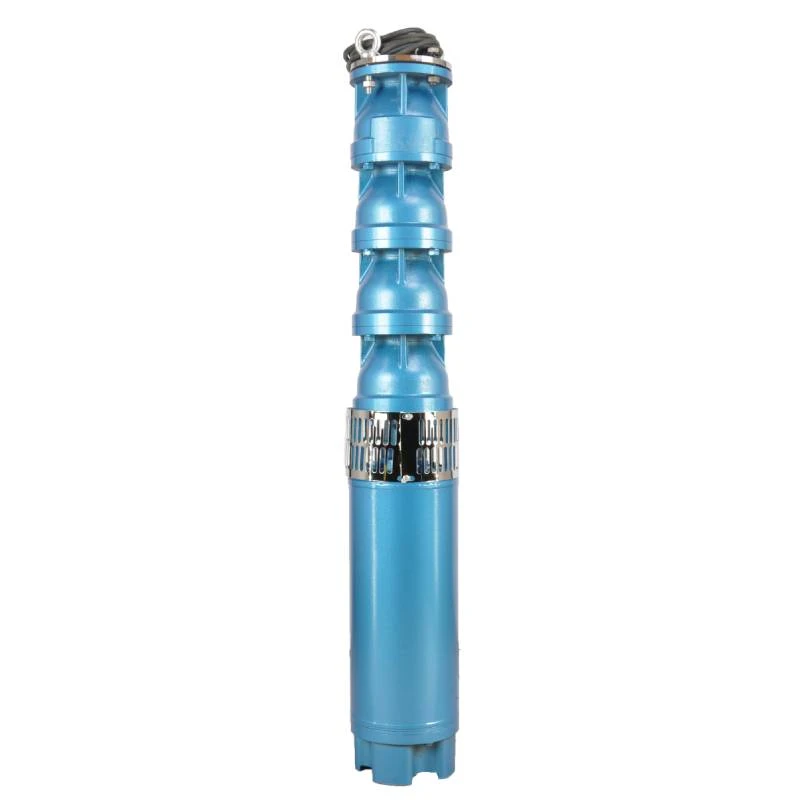Aug . 08, 2024 00:25 Back to list
Exploring the Benefits and Applications of Underwater Pumps in Various Industries and Environments
The Importance of Underwater Pumps in Modern Applications
Underwater pumps have become an essential technology in various sectors, including agriculture, construction, wastewater management, and aquaculture. These specialized pumps are designed to operate submerged in water, enabling efficient fluid movement and management in diverse environments. As global demands for water resource management and waste disposal continue to grow, the significance of underwater pumps is increasingly recognized.
Working Mechanism
Underwater pumps typically consist of a motor and a impeller, housed in a sealed unit to withstand the harsh conditions of underwater operations. The motor drives the impeller, creating a pressure differential that moves water from one location to another. This mechanism allows for the seamless transportation of water, be it from wells, lakes, or reservoirs. The design and construction of these pumps vary based on their intended use, with key factors such as flow rate, depth of operation, and the nature of the fluid to be pumped taking precedence.
Versatility in Applications
One of the main advantages of underwater pumps is their versatility. In agriculture, they are widely used for irrigation purposes, particularly in areas where surface water is scarce. By drawing water from underground aquifers, farmers can sustain their crops even in arid conditions. Moreover, underwater pumps play a critical role in flood control and drainage systems, ensuring there is minimal water accumulation during heavy rains or in low-lying areas.
In the construction industry, underwater pumps are indispensable for dewatering sites that are prone to water ingress
. They help create safer and more manageable work environments during excavation and foundation work. Similarly, in the aquaculture sector, these pumps are utilized to circulate and aerate water in fish farms, promoting healthy aquatic life.underwater pump

Underwater pumps are also integrated into municipal wastewater treatment facilities. They are responsible for transferring sewage and sludge from one treatment stage to another, thus playing a pivotal role in maintaining the efficiency of waste management systems. The ability of these pumps to handle solids and debris is critical in ensuring that treatment plants can process wastewater effectively and with minimal disruption.
Technological Advancements
The progression of technology has significantly enhanced the efficiency and durability of underwater pumps. Modern designs feature advanced materials that are corrosion-resistant, ensuring longevity in harsh environments. Additionally, innovations such as smart sensors and IoT integration allow for real-time monitoring and management, optimizing pump performance and reducing operational costs. These advancements contribute to better resource management and energy efficiency, aligning with global sustainability goals.
Environmental Impact and Sustainability
With increasing awareness of environmental issues, the role of underwater pumps in sustainable practices cannot be overstated. Properly installed and maintained pumps can reduce energy consumption and groundwater depletion. However, it is crucial for operators to ensure that they are using these pumps responsibly to prevent over-extraction of water resources, which can lead to negative ecological impacts.
In conclusion, underwater pumps are a vital component of modern fluid management systems across multiple industries. Their ability to operate efficiently underwater while being adaptable to various applications highlights their importance in addressing today’s water-related challenges. As technology continues to advance, we can expect even greater innovation in underwater pump systems, further enhancing their capabilities while promoting sustainability and environmental responsibility. Whether in enhancing agricultural productivity or managing municipal water systems, underwater pumps will undoubtedly continue to play a crucial role in our water-dependent world.
-
Submersible Water Pump: The Efficient 'Power Pioneer' of the Underwater World
NewsJul.01,2025
-
Submersible Pond Pump: The Hidden Guardian of Water Landscape Ecology
NewsJul.01,2025
-
Stainless Well Pump: A Reliable and Durable Pumping Main Force
NewsJul.01,2025
-
Stainless Steel Submersible Pump: An Efficient and Versatile Tool for Underwater Operations
NewsJul.01,2025
-
Deep Well Submersible Pump: An Efficient 'Sucker' of Groundwater Sources
NewsJul.01,2025
-
Deep Water Well Pump: An Efficient 'Sucker' of Groundwater Sources
NewsJul.01,2025
-
 Submersible Water Pump: The Efficient 'Power Pioneer' of the Underwater WorldIn the field of hydraulic equipment, the Submersible Water Pump has become the core equipment for underwater operations and water resource transportation due to its unique design and excellent performance.Detail
Submersible Water Pump: The Efficient 'Power Pioneer' of the Underwater WorldIn the field of hydraulic equipment, the Submersible Water Pump has become the core equipment for underwater operations and water resource transportation due to its unique design and excellent performance.Detail -
 Submersible Pond Pump: The Hidden Guardian of Water Landscape EcologyIn courtyard landscapes, ecological ponds, and even small-scale water conservancy projects, there is a silent yet indispensable equipment - the Submersible Pond Pump.Detail
Submersible Pond Pump: The Hidden Guardian of Water Landscape EcologyIn courtyard landscapes, ecological ponds, and even small-scale water conservancy projects, there is a silent yet indispensable equipment - the Submersible Pond Pump.Detail -
 Stainless Well Pump: A Reliable and Durable Pumping Main ForceIn the field of water resource transportation, Stainless Well Pump has become the core equipment for various pumping scenarios with its excellent performance and reliable quality.Detail
Stainless Well Pump: A Reliable and Durable Pumping Main ForceIn the field of water resource transportation, Stainless Well Pump has become the core equipment for various pumping scenarios with its excellent performance and reliable quality.Detail
